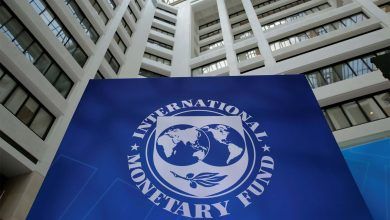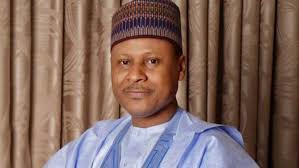IMIL: UNESCO Earns Rave Reviews For Approving Institute In Nigeria

Nigeria’s Minister of Information and National Orientation, Mohammed Idris, has commended the United Nations Educational, Scientific & Cultural Organization (UNESCO) for approving an International Media and Information Literacy (IMIL) Institute in Nigeria as part of efforts to scale up the fight against disinformation and misinformation.
The Minister made the remark during a courtesy visit to his office by the Ambassador and Permanent Delegate of Nigeria to UNESCO, Dr. Hajo Sani on Wednesday, October 18, 2023.
The Minister assured UNESCO that the Federal Government would provide everything needed for the take-off of the Institute, adding that the decision to establish the Institute in Nigeria is a big win for the country.
He noted the efforts that the UNESCO Mission in Paris and the Nigerian National Commission for UNESCO have all been making to optimise the benefits of Nigeria’s participation in the global body.
The Minister expressed his gratitude towards Nigeria’s Permanent Delegate for their pivotal role in ensuring the resounding success of the 2022 UNESCO Global Media and Information Literacy Week, which was held in Abuja a year ago.
Furthermore, the Minister recognized the Federal Ministry of Information and National Orientation’s contributions towards media and information literacy, promotion of freedom of expression, media independence, and building of all-encompassing knowledge societies, which are supported by universal access to information and innovative use of digital technologies.
During her speech, Dr. Hajo Sani, the Nigerian Ambassador and Permanent Delegate to UNESCO, highlighted the successful hosting of the 2022 Global Media and Information Literacy Week in Abuja.
The event resulted in two significant outcomes – the Abuja Declaration on Global Financing for MIL and the establishment of an International MIL Institute in Nigeria. Dr. Sani emphasized the importance of increased financing and commitment to MIL, which is advocated by the Abuja Declaration.
In order to bring the institute’s vision to life, the Ambassador identified several essential steps. These steps include creating a clear vision for the institute, establishing a structure and budget to ensure sustainable funding, and developing a comprehensive plan of action.
A comprehensive proposal that encompasses all necessary elements will be prepared and submitted to the Director-General of UNESCO.
This proposal will serve as the foundation for a feasibility study, which will result in a report and recommendation to the Executive Board regarding Nigeria’s readiness to host the Category Two Institute.
The Ambassador urged the Ministry to take swift action, fully commit to this endeavor, and also mobilize officials responsible within the Ministry to collaborate with the Permanent Delegation and UNESCO headquarters in moving to the next phase.




